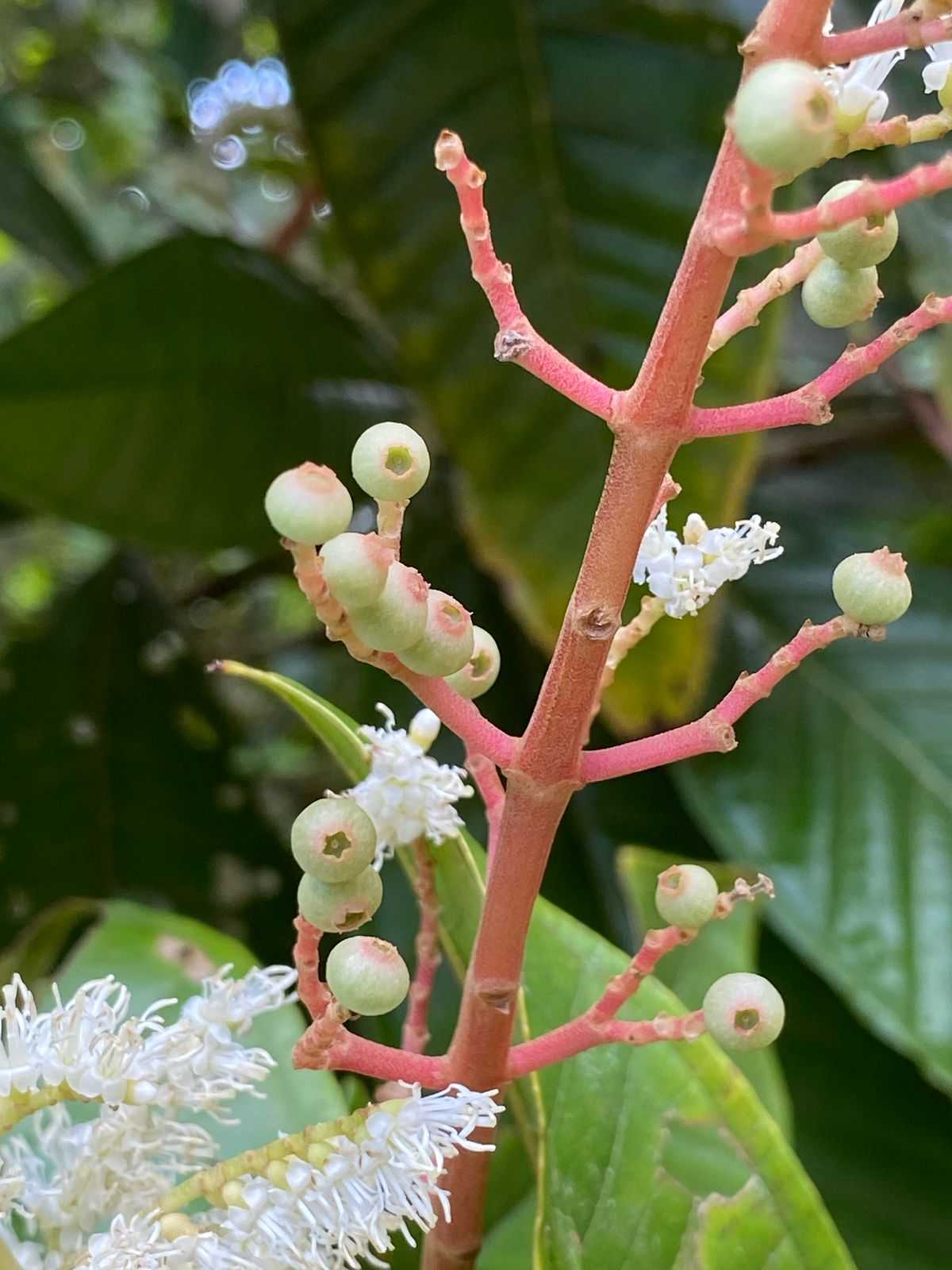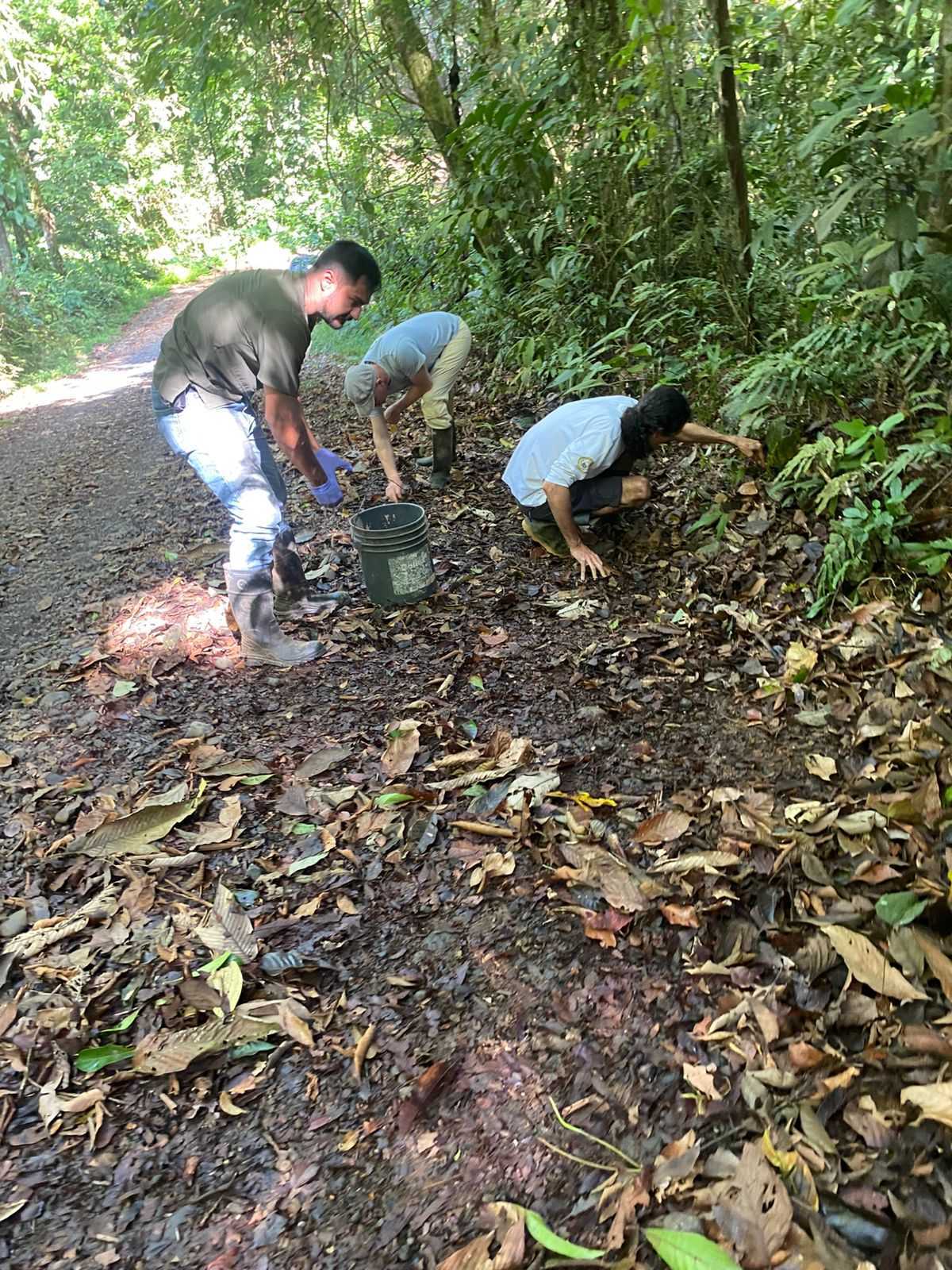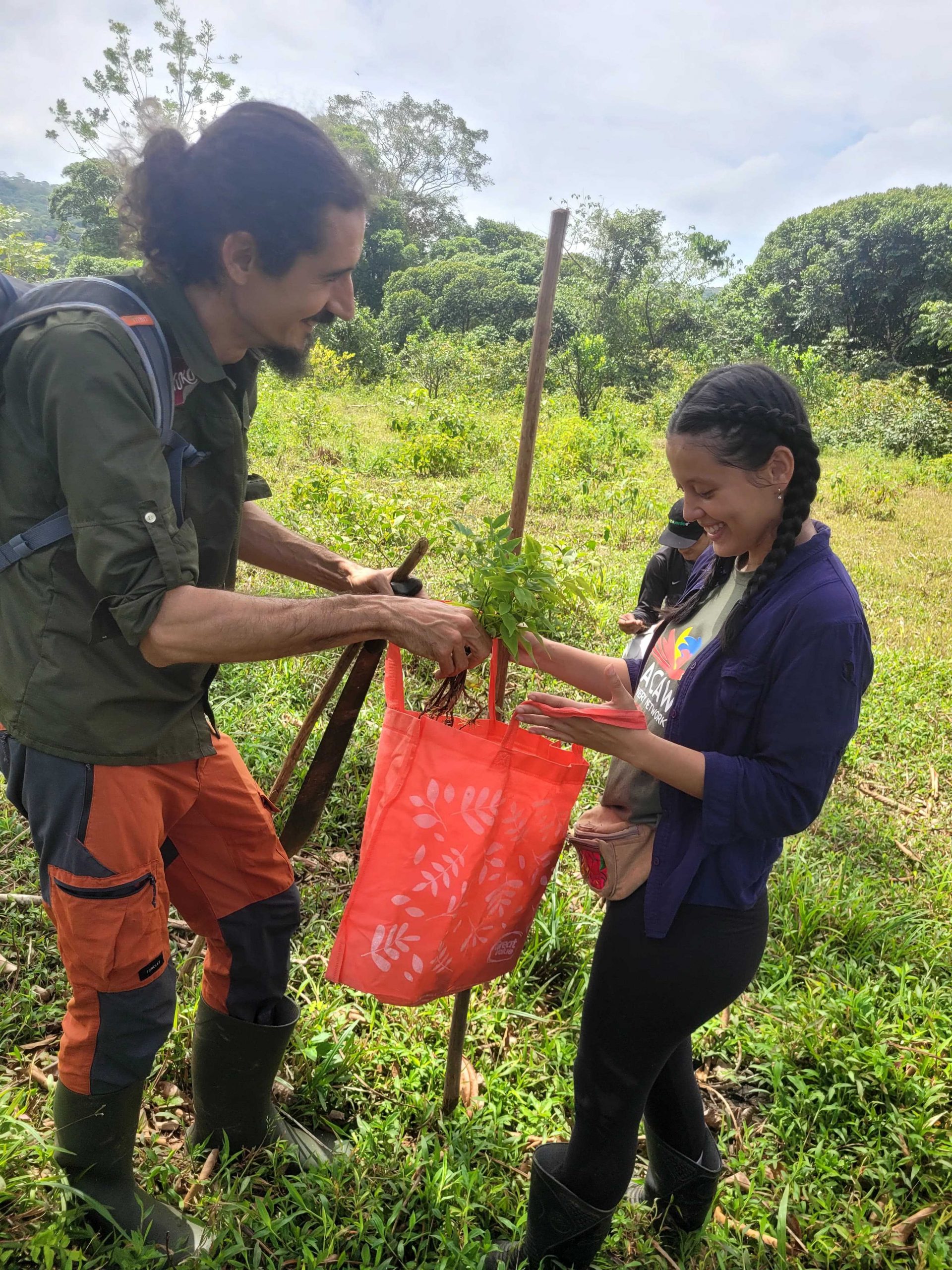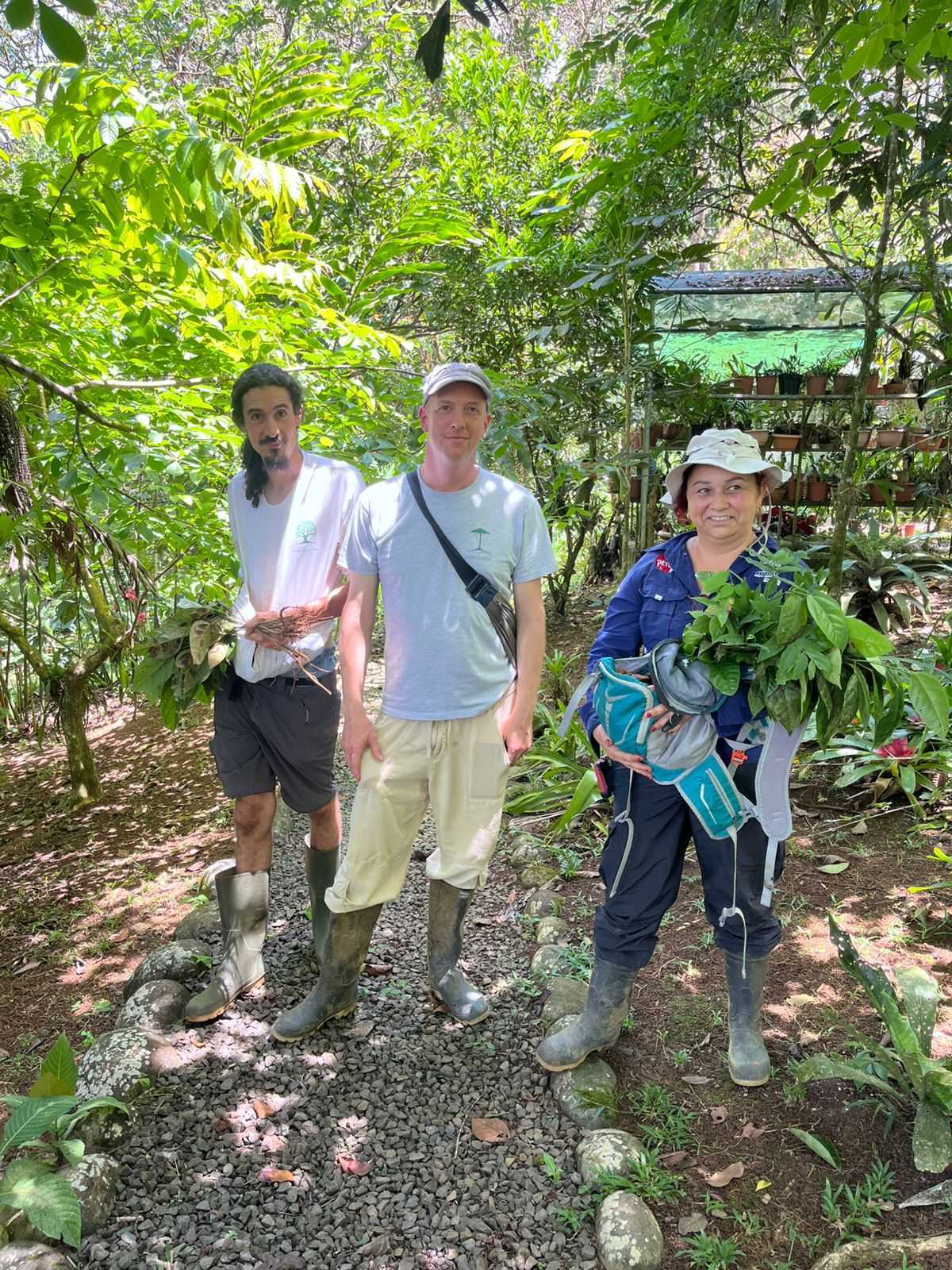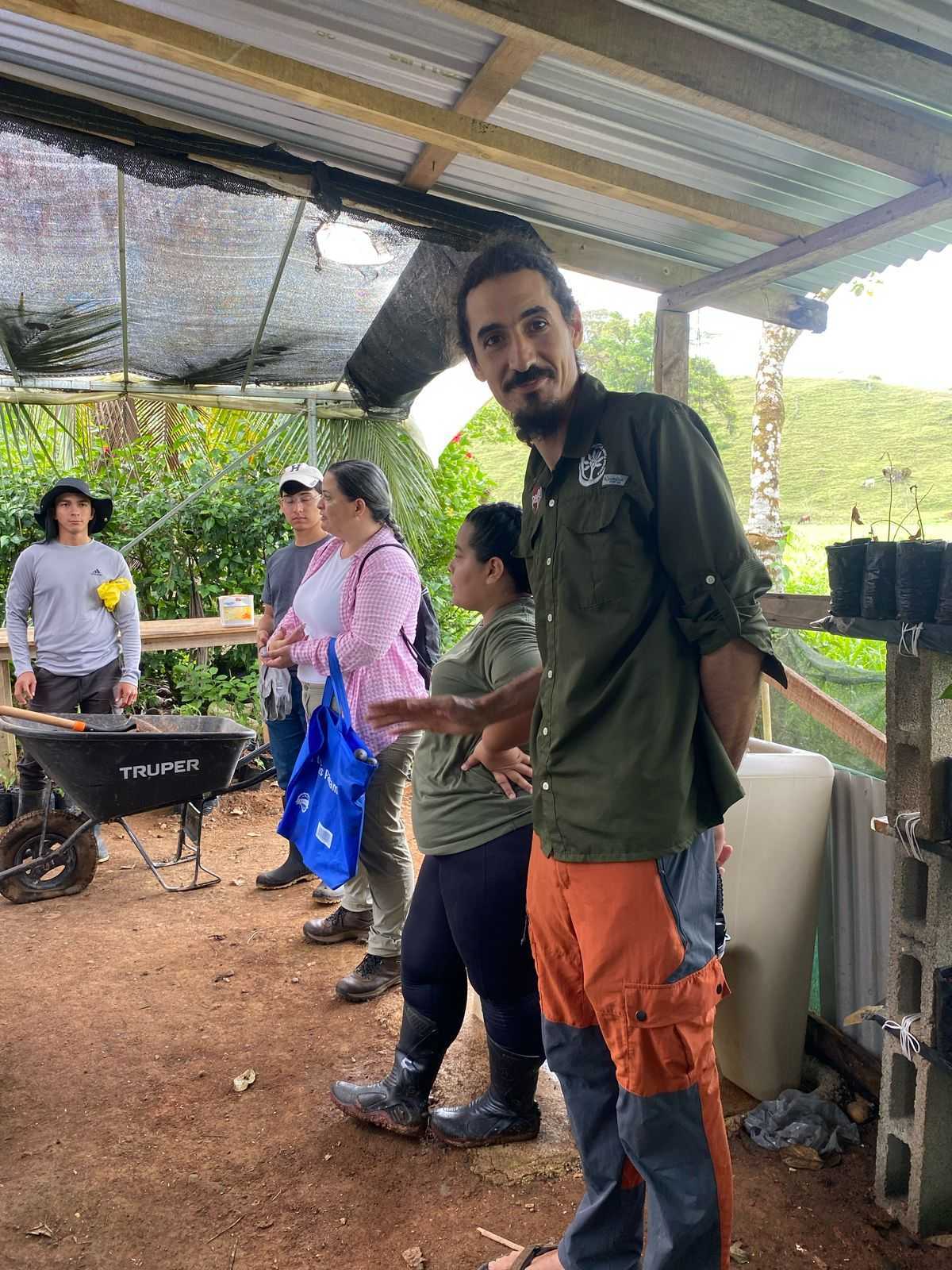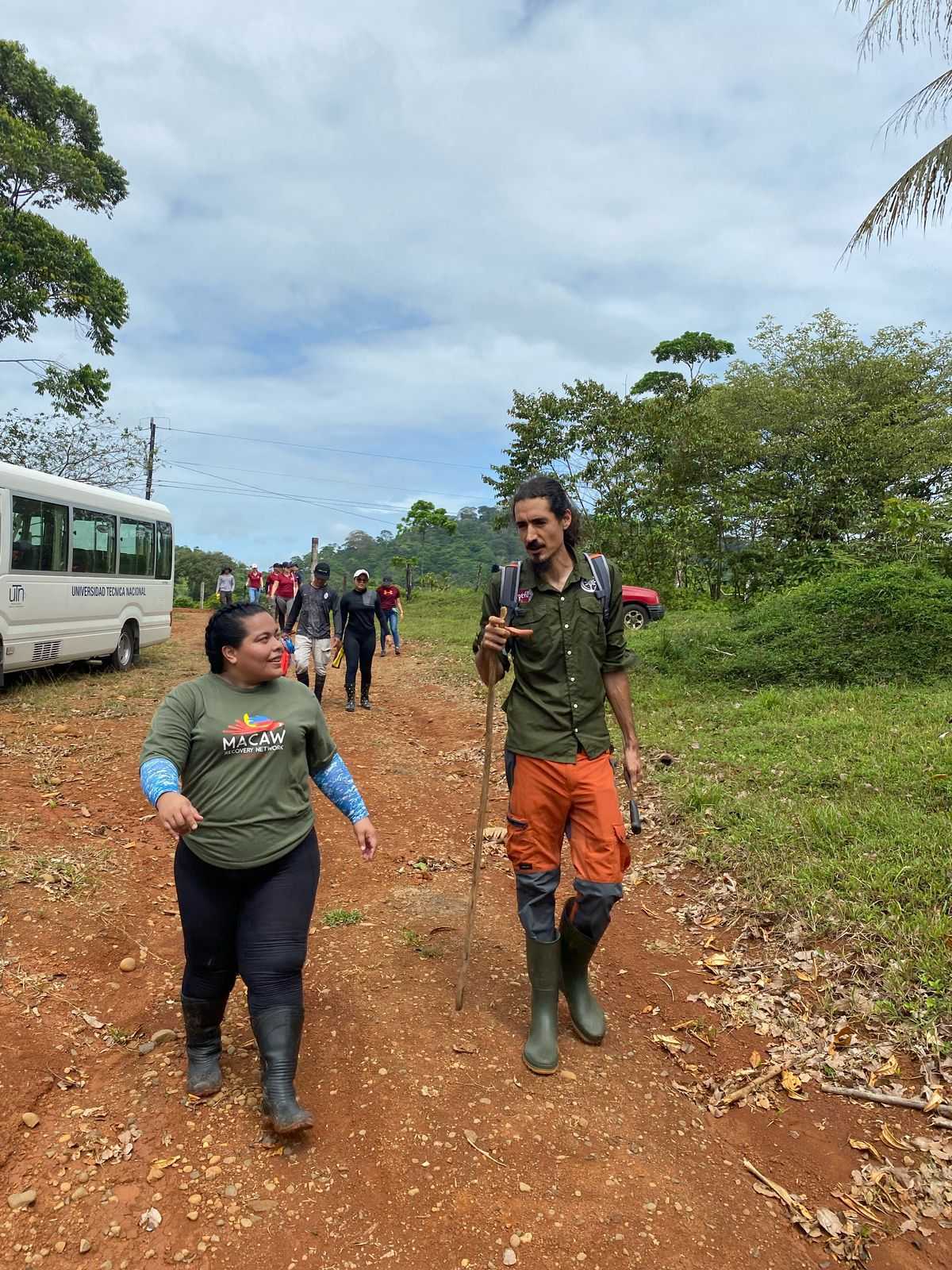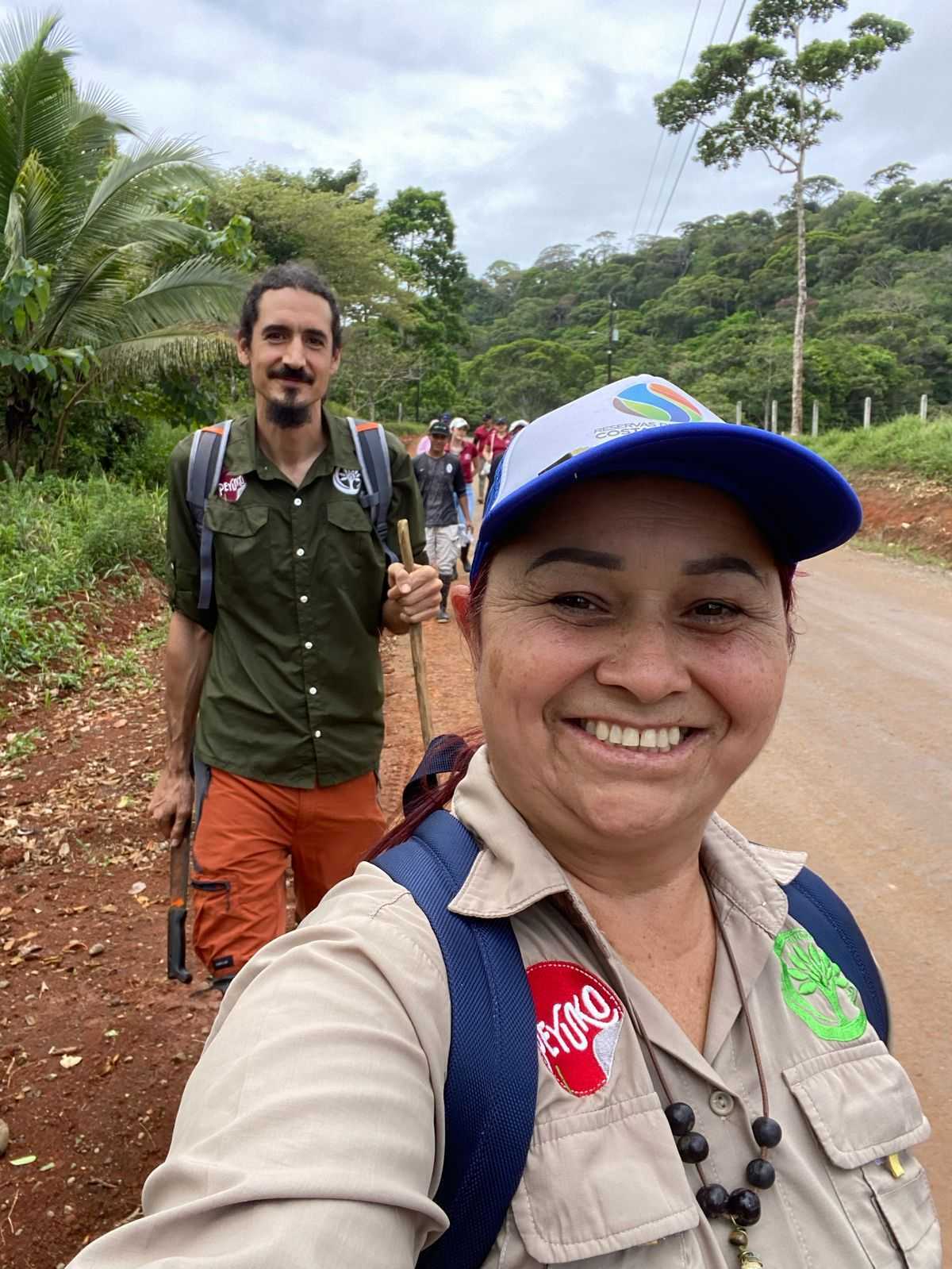Interview: Laura Alfaro Gonzalez presents the project
What is the “Árboles y Plumas para la Zona Norte” (Trees and Plumes for the North Zone) project?
This is a project for the ecological restoration and protection of biodiversity in the canton of San Carlos, Costa Rica. Our main focus is on the protection and restoration of the habitat of the Great Soldier Macaw (Ara ambiguus), an emblematic and endangered species.
We do this by producing, donating and planting important trees for its feeding and nesting sites with the participation of many volunteers.
Why was the Great Soldier’s Macaw chosen as the central species of the project?
The Great Soldier Macaw is not only a beautiful and charismatic bird species, but also an umbrella species. By protecting its habitat, we also preserve many other animal and plant species that share the ecosystem.
It is also a symbol of identity and pride for the communities in northern Costa Rica and has great potential to promote ecotourism.
Who is involved in this project?
We work as a network. The project is led by the Abuela Ecológica Foundation in collaboration with the Macaw Recovery Network, CODEFORSA, Peyuko, the municipality of San Carlos and organizations such as Stichting Oasebos, Vera Verde and Trópica Verde.
We also benefit from the valuable support of local communities, families, schools, farmers and volunteers.
What specific measures are being implemented as part of the project?
We identify and collect seeds of important trees such as the mountain almond tree, breadnut tree and monkey pot tree.
We produce over 8,000 trees in tree nurseries.
We donate and plant these trees on rural estates, in communities and near nature reserves.
We offer workshops and informational presentations with organizations such as the Macaw Recovery Network and CODEFORSA to raise awareness of the importance of protecting the Great Soldier Macaw and its forest.
What effect do you hope to achieve?
We want to achieve three main goals:
Restore the natural habitat of the greater soldier macaw so that its populations can grow.
Involve communities in nature conservation through education and direct participation.
Promote a sustainable development model in which nature conservation and well-being go hand in hand.
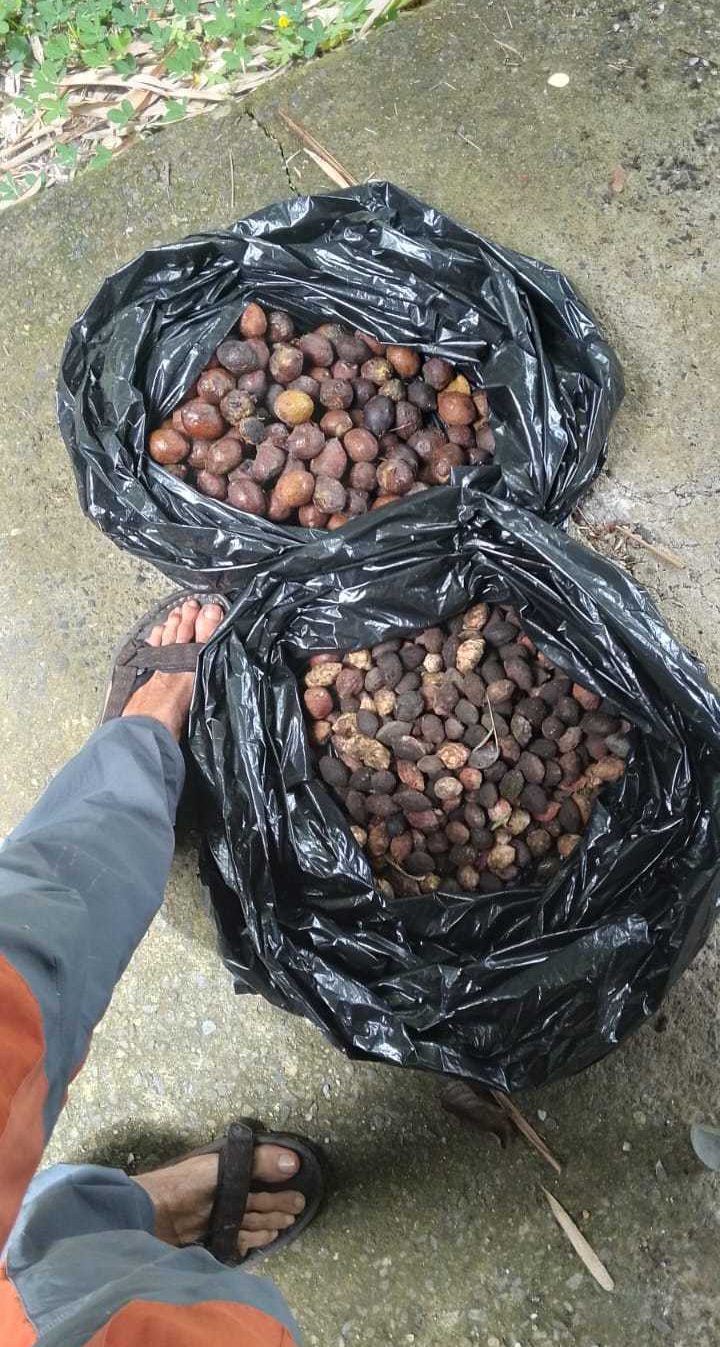
How is this project related to the legacy of the Ecological Grandmother (name of the organization is: Ecological Grandmother Organization)?
The inspiration for this project comes from Mrs. Bertalía González Villalobos, our beloved Ecological Grandmother. She has planted over 20,000 trees for over 10 years to feed animals and dream of a greener future for generations to come. This project honors her vision: Sowing, sustaining and teaching life. Every tree planted is a continuation of her legacy.
How can the community or the public get involved?
The community can contribute in many ways: By receiving trees to plant on their farms or homes. By taking part in workshops or planting days. Support us with donations, volunteer work or spread the word about the project. And above all: make a commitment to look after the planted trees, because nature conservation is a long-term undertaking.
What final message would you like to share with us?
Our message is simple: planting a tree is planting hope. Protecting the Great Soldier Macaw protects life, water, climate and the future of our communities. This project shows that together we can restore nature and create a fairer and more sustainable world.
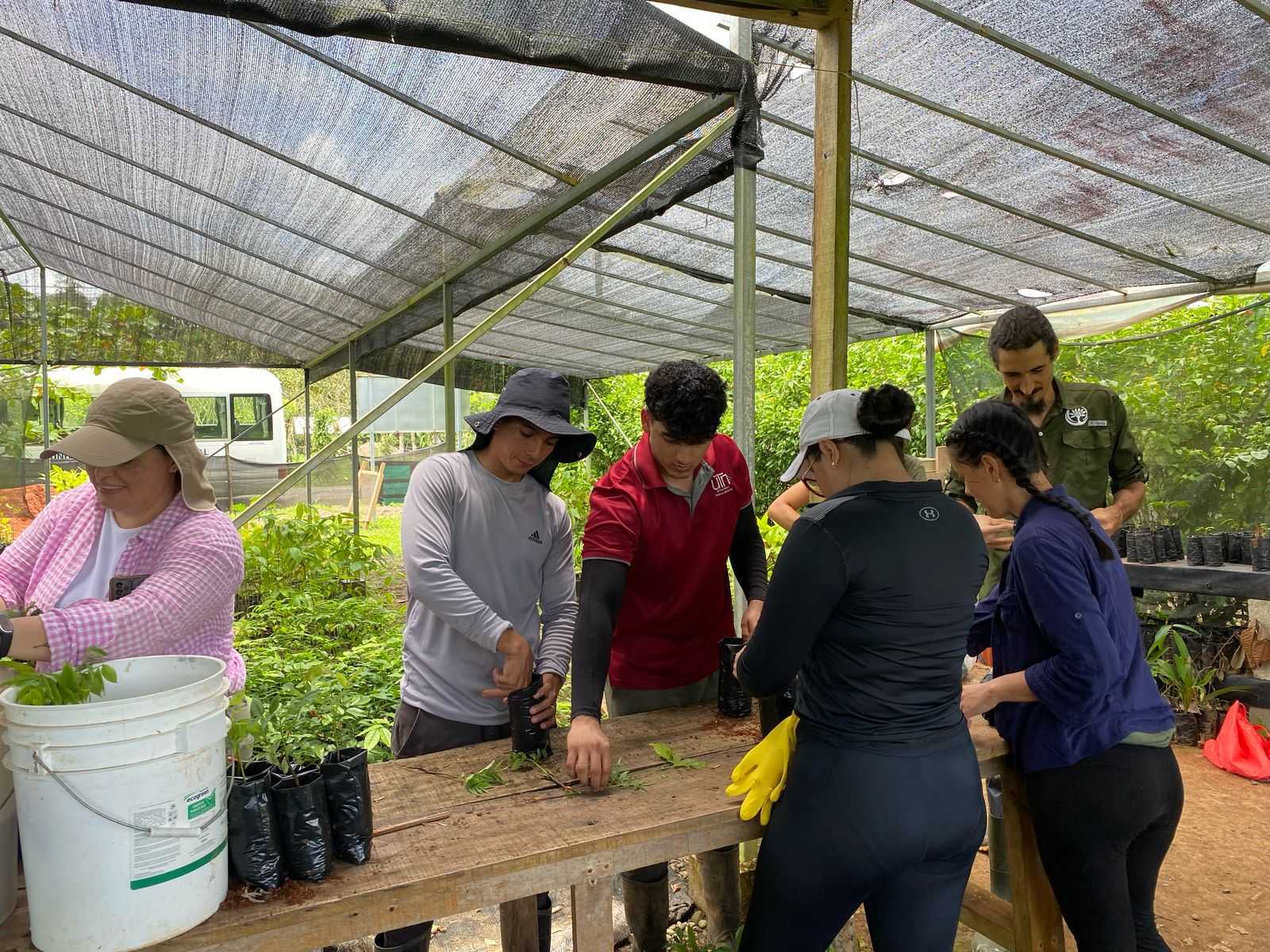
Overview of the project
- ÁRBOLES Y PLUMAS PARA LA ZONA NORTE (TREES AND FEATHERS FOR THE NORTHERN ZONE)
- Execution period: January 2025 – December 2025
- Location: Canton of San Carlos, Huetar Norte and Atlantic coast of Costa Rica
- Leading organization: Abuela Ecológica Foundation
The project “Árboles y Plumas para la Zona Norte” (Trees and Feathers for the Northern Zone) is an initiative for the ecological restoration and protection of biodiversity in the canton of San Carlos, Costa Rica. The focus is on the protection of the Great Soldier Macaw (Ara ambiguus), an emblematic and endangered bird species. The aim is to secure the habitat of this species through reforestation and reforestation, education and the active participation of local communities.
The new project is a response to the ecological crisis of the greater soldier macaw. The loss and fragmentation of its habitat as well as hunting have drastically reduced the population of the endangered bird species. San Carlos, a region historically linked to this species, has the environmental and social potential to become a center of its recovery.
The initiative integrates environmental restoration, education and social participation. It is embedded in a sustainable development model that is resilient to climate change and in line with the Sustainable Development Goals (SDGs), in particular Goal 13 (climate action) and Goal 15 (life on land).
Why the Great Soldier Macaw?
The greater spotted macaw is not only a charismatic bird, but also an umbrella species. Its protection also means the conservation of numerous other species. Restoring its habitat benefits numerous species and improves the health of the ecosystem. It is also a symbol of the region’s identity and a driving force for ecotourism. The Great Soldier Macaw is a key species for the protection of tropical forests and an important attraction for ecotourism. The recent release of macaws in Chachagua (2025) makes it urgent to strengthen the conditions for their reintroduction. The local communities have expressed their interest and commitment, thus strengthening the social viability of the project.
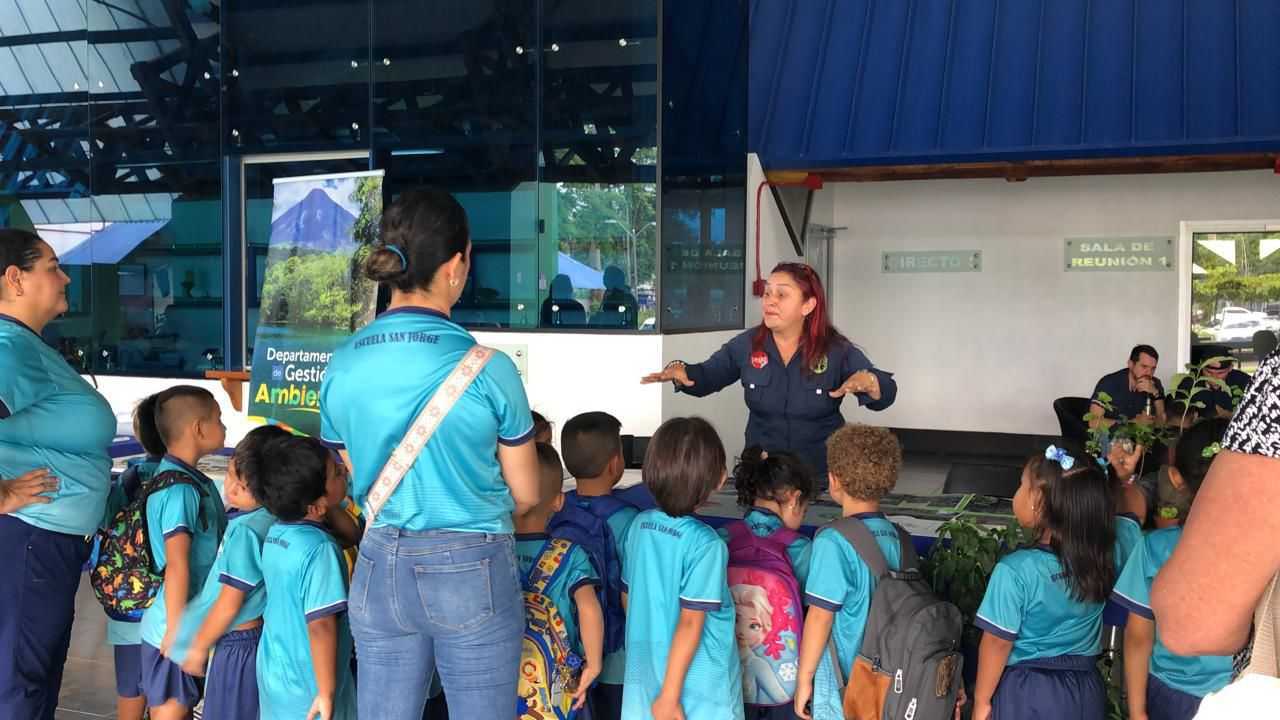
Methodology
- Seed collectionSelection of native species that provide food and nesting sites. Conducted in collaboration with the Macaw Recovery Network. Native species that are important to the diet and nesting habitat of the greater soldier macaw are favored. The use of local genetic material is guaranteed in order to preserve the ecological identity of the area.
- Growing in nurseriesThe trees are grown in nurseries run by the Abuela Ecológica Foundation, Peyuko, the municipality/administration of San Carlos and the Macaw Recovery Network. The seedlings are reared for 4-6 months until they have reached the right size for planting.
- Tree donation & plantingThe trees are donated with technical support to communities, families and private rural properties. Each beneficiary receives between 3 and 7 trees with the obligation to maintain them. Preference is given to areas close to biological corridors and protected areas.
- Education & awareness-raisingCreation of educational materials (infographics, videos, workshops), involvement of the local population through community talks with CODEFORSA and the Macaw Recovery Network & active participation of schools, local organizations and community representatives.
Benefit
- Ecological: Regeneration of tropical rainforests, protection of endangered species, improvement of air and water quality.
- Social: Environmental education for kids and adults, community empowerment, citizen participation in climate change solutions.
- Economic: Promotion of ecotourism, dynamization of local businesses, potentialincome generation through ecosystem services.
Expected results
- Planting 8,000 key trees for the Great Soldier Macaw
- Restoring fragmented habitats & strengthening ecological connectivity
- Strengthening local participation in nature conservation & restoration measures
- Promotion of ecotourism through birdwatching
- Support for the released macaw population in Chachagua & surrounding area
Project partners
The project is managed by the Abuela Ecológica Foundation. Cooperation partners include the Macaw Recovery Network, CODEFORSA, Peyuko, the municipality of San Carlos and international partners such as Stichting Oasebos, Vera Verde and Tropica Verde. It is also supported by local communities, families, schools, farmers and volunteers.
Financing
The project is financed by local and international partners, private donations and companies. All the institutional project partners mentioned above are involved. Every donation counts! Are you also involved?
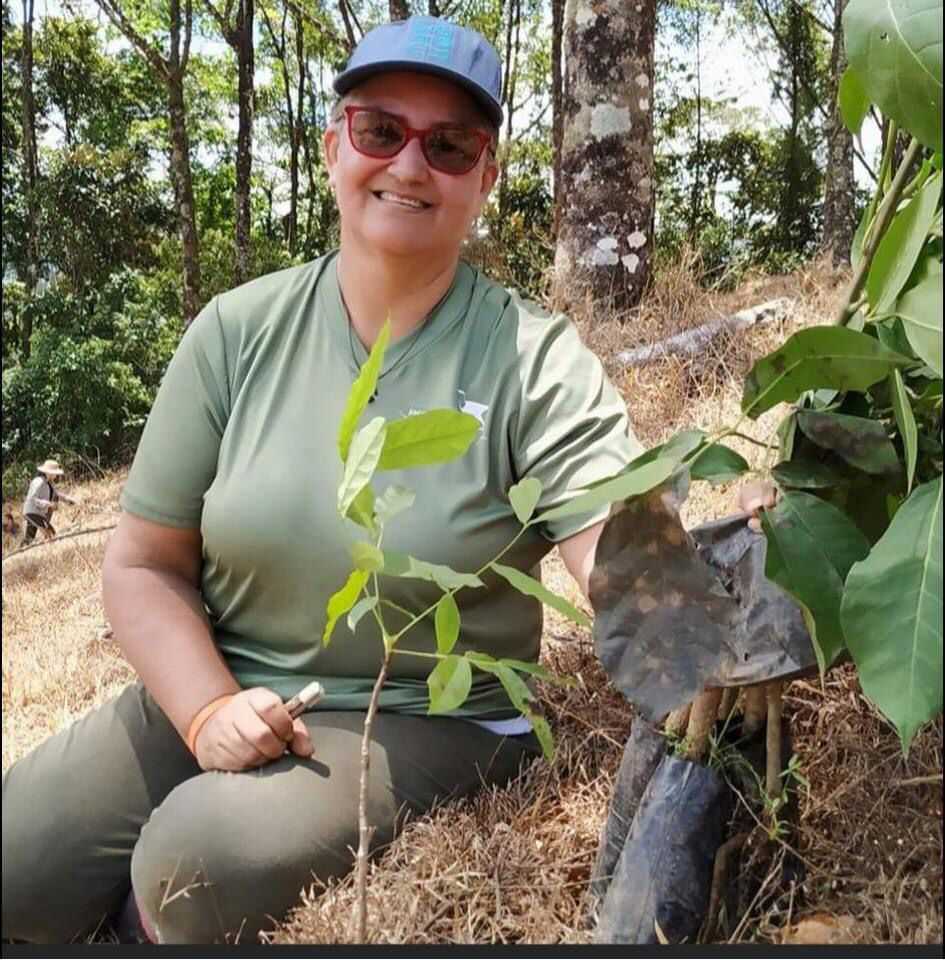
“A tree is a gift for those who are yet to be born. Let us continue to sow life.”
– Abuela ecológica (The Ecological Grandmother)
Conclusion
“Árboles y Plumas para la Zona Norte” is much more than a reforestation project: it is a symbol of hope. By planting trees and bringing people together, we are rebuilding the home of the Great Soldier Macaw and creating a greener, fairer and more sustainable future for the canton of San Carlos.
Every tree planted means a future – for the Great Soldier Macaw, for the communities and for sustainable development in Costa Rica.
